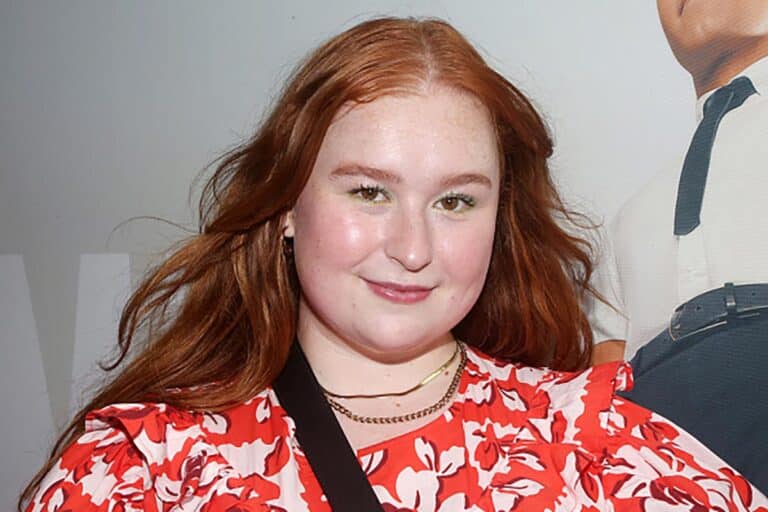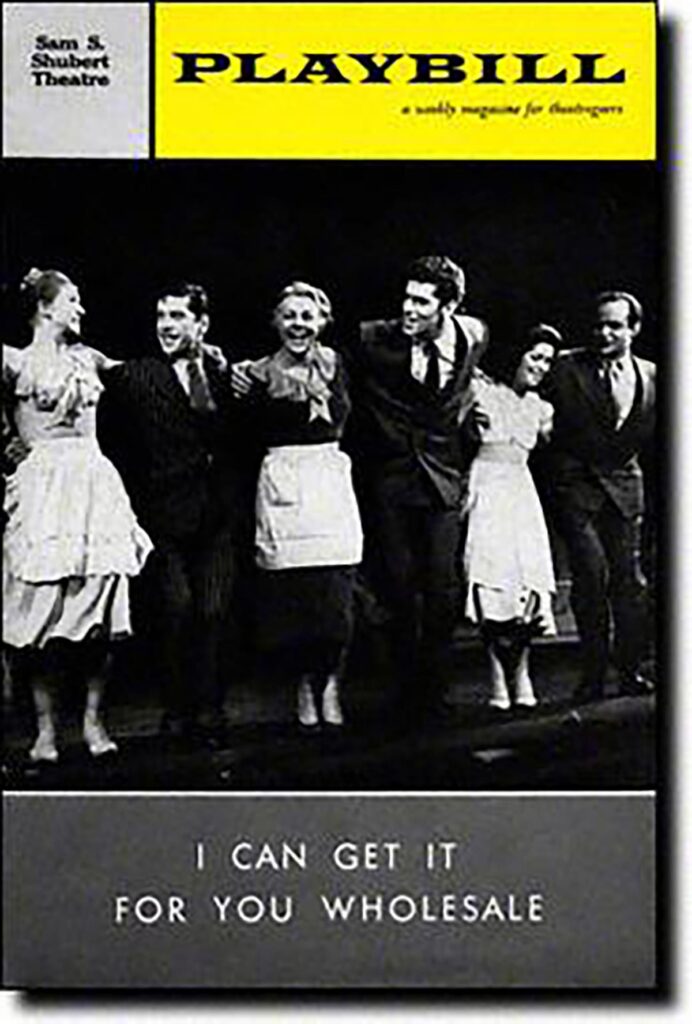
At just 23, Julia Lester has already starred in a Broadway show, been nominated for a Tony Award, and portrayed Ashlyn Caswell in the award-winning “High School Musical: The Musical: The Series.”
Recently the starlet delved into her own Jewish heritage in an off-Broadway production, “I Can Get That For You Wholesale,” which had a limited run at the Classic Stage Theater in New York City, concluding on December 17.
Unpacked recently caught up with Lester about stepping into Barbra Streisand’s iconic role, the importance of Jewish representation in theater, and her passion for classical theater.
Lester wanted to reinvent Miss Marmelstein
Set in the 1930s in New York’s garment district, which was run by Jewish immigrants from Eastern Europe, “Wholesale” features an entire cast of Jewish characters and incorporates scenes at Shabbat dinners and a bar mitzvah. Plus, the music relies heavily on traditional klezmer harmonies and Yiddishisms.
The main theme in “Wholesale” revolves around the impact of unchecked capitalism on working-class Jews. Lester’s second show-stopping number “What Are They Doing to Us Now” delves into the dark realities of exploitation.
Lester starred as Miss Marmelstein, originally played by a 19-year-old Barbra Streisand in 1962. Streisand belting “Miss Marmelstein” is one of the most memorable moments of “Wholesale,” even though much of the original show, despite its 300 Broadway performances, has been lost to time.
Like Streisand, Lester also received a Tony Award nomination for this breakout role. Despite the high stakes of being the first to portray the spunky Jewish secretary in New York City after Streisand, Lester didn’t feel any pressure about filling Streisand’s shoes. She was particularly attracted to the role knowing it was Streisand’s Broadway debut.
“The sheer fact that Miss Mermelstein was Barbra Streisand’s Broadway debut [really drew me in]. It just seemed like such a cool opportunity to bring something so exciting and iconic like that to today’s audiences,” she told Unpacked.
Streisand has always been a musical influence to the California native, who grew up watching Streisand’s performances. She often watched videos from the 2,000 “Timeless Concerts,” in which Streisand sings “Miss Marmelstein.”
Aware of the song’s popularity, Lester aimed to offer a fresh take on the character. Her portrayal is more emotional and schmaltzier than Streisand’s, blending her comedic talents with exasperated sighs and physical humor to breathe new life into the exhausted secretary.
“From the start, I felt very encouraged to make the role my own while still paying homage to the original that everybody knows and loves so much,” Lester said.
Working on the show helped her connect with her own heritage
Lester’s role in “I Can Get That for You Wholesale” was her first portrayal of a Jewish character in a production rich with Jewish themes. This experience gave her a chance to reflect on her identity as a young Jewish woman in the entertainment industry.

One highlight for Lester was collaborating with so many Jewish creatives. The cast shared an incredibly small dressing room, and Lester enjoyed bonding with the other cast members during pre-show preparations.
The experience of bonding with Jewish castmates in a production that centers Judaism helped Lester feel a profound connection to her heritage, creating a sense of family within the cast.
She appreciated that many of the Jewish cast members educated their non-Jewish colleagues about Jewish traditions and the significance of reviving “Wholesale” for greater Jewish representation in theater.
Coming from a family with a history in show business (her ancestors were in a traveling opera troupe), Lester feels proud to continue her family’s legacy, especially in a production that openly celebrates her religion and culture.
Lester wants to take on more Jewish roles in future projects
“It’s so important to portray your identity through your art. Up to this point, I hadn’t really been able to show the Jewish point of view of myself. So, that’s been really exciting,” said the actress, who previously performed a Hanukkah medley for “High School Musical: The Musical: The Series.”
Whether the actress’ future forays into expressing her Judaism on the stage or the screen is something Lester is letting fate choose for her.
She is open to any opportunity that would allow her to educate audiences, challenge preconceptions, and provide the same sense of fulfillment she found in “Wholesale.”
“I am really just so excited for the opportunity to tell stories that I feel passionate about…stories that make me feel like I’m a part of something bigger than my performance,” Lester said.
Lester has loved allowing the world to get to know her better through the part she played on “HSMTMTS” and in “Wholesale.”
Portraying Ashlyn gave her the opportunity to share queer joy and discovery, while Miss Marmelstein gave her fans insight into her Jewish heritage.
“It’s so important that I’ve been able to play characters who are unabashedly Jewish and unabashedly queer…The fact that those parts of myself get to be explored through the characters I play is the most rewarding part of being a performer,” she said.
Lester hopes the new version of “I Can Get it For You Wholesale” will encourage people to embrace classic theater
The new production of “Wholesale,” adapted by John Weidman — son of Jerome Weidman who authored the original script and novel on which the show is based — is a very different retelling of the 1962 musical.
The revamped version, updated for a modern audience, explores more of Miss Marmelstein’s desires, including her struggle to be seen beyond her identity. The show also amplifies the theme of capitalist greed on the working class, making it a relevant commentary in today’s world.
To prepare for the role, Lester explored the aspirations and struggles of a young Jewish woman working in the 1930s garment industry. She appreciated the changes to the script, which allowed her to do deeper character work.
Lester believes it’s crucial for Gen Z to discover and appreciate classic, lesser-known theatrical works and understand the origins of the shows they’re familiar with.
“I think what Classic Stage Company does so beautifully is bring those pieces of work to audiences today and reintroduce them to the roots of theater,” Lester said. “It has made me fall in love with the idea of classic musical theater all over again.”
Now that she has played the iconic Miss Marmelstein and Little Red Riding Hood in “Into the Woods” on Broadway, Lester’s next goal is to originate a character in theater.
“I’ve had the opportunity to play characters that have already had a life of their own, and to be able to breathe my own sense of self into them. I’d love to discover a character from the ground up, something that’s never been done before,” she said.
